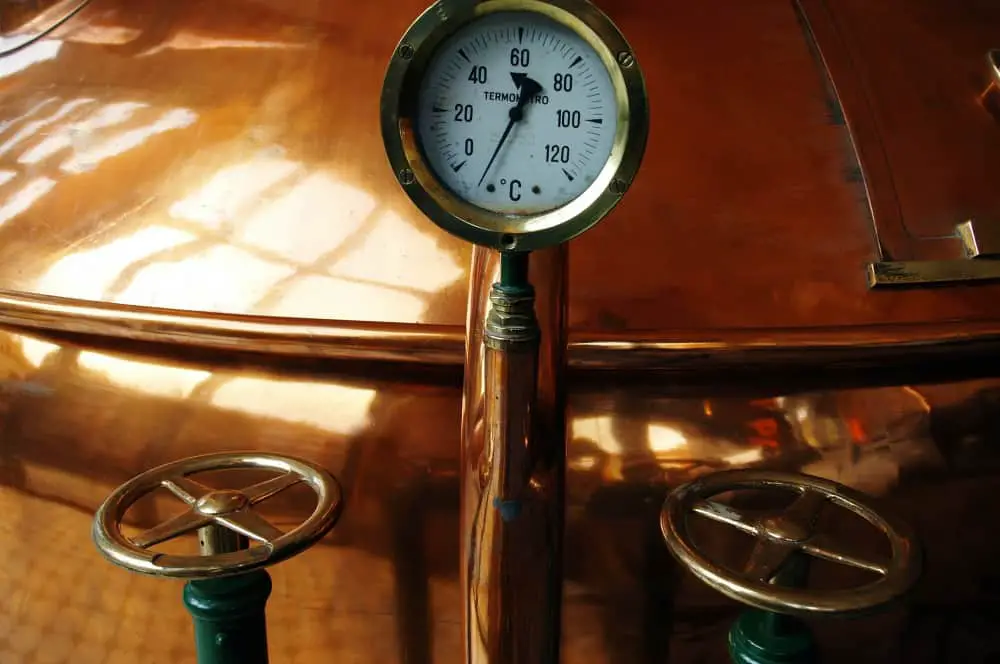Table of Contents
*This post may contain affiliate links. As an Amazon Associate we earn from qualifying purchases.
The beer industry isn’t the same as it was 20 years ago or even in just the past two years. National brands now have to share the market with a host of other options including craft brewers, brewpubs, and microbreweries. The craft brewing segment has more than doubled in volume since 2011. One type you may not know about is the nanobrewery. Let’s explore it detail and finish with our choices for the best nanobreweries.
Where Does the Nanobrewery Fit In?
Any establishment that produces beer for sale is a brewery with the distinction in volume. Federal, state, and local laws regulate its production and restrictions. A craft brewer, for example, can make 6 million barrels or less as defined by the Beverage Association. Microbreweries are limited to much less with the general figure of 15,000 barrels or less.
The nanobreweries are at the low end of the scale. The federal government defines them as very small producers. They may make as little as a few hundred barrels a year. While that may seem frivolous, it offers several advantages to the sole entrepreneur wanting to test the waters. You can think of it as a proof of concept strategy. It’s a safer and more conservative approach to just throwing your hat into the ring.
If you’re a serious hobbyist, it may make sense to see if you have the potential to think bigger like a microbrewery. It could end up as a lucrative source of secondary income if you’re successful. This industry has an excellent track record with a noteworthy percentage of annual growth.
Microbreweries have had a failure rate of only 24 percent for businesses opened since 1980. Recent years have seen around 14 percent rate of annual growth with all signs pointing toward continued success. But don’t be fooled. Even though nanobreweries produce small amounts, they are still subject to the same laws and regulations that the big boys have to follow.
Why You Should Choose a Nanobrewery
If you have an interest in home brewing, it makes sense to tap into the knowledge of the local brewer. You’ll learn more about the ins and outs of making beer than you ever could touring a national brand’s brewery. A producer on this scale has the latitude to experiment with recipes and formulas—as long as they stick to the approved ingredients and alcohol contributions.
You can learn more about the process of brewing from ingredients to fermentation. A brewer at a nanobrewery can try out different types of grains, yeasts, and helper ingredients or adjuncts to perfect a batch. It’s a way that many establishments such as Dogfish Head in Delaware got their start.
The Nanobrewery Advantage
A nanobrewery isn’t bound by the constraints of other stakeholders or board of directors in a small operation. They can experiment with specialty malts without a large investment on their part. As a beer drinker, that means unique opportunities to refine your palate and to try something truly different.
Then, there’s the all-important freshness factor. There’s a limit to the peak tasting time for beers. It’s generally shorter with light beers and longer with those that are aged. But as soon as it’s bottled, the clock starts ticking. You can drink brews when they taste the best without the added time to ship to market. You’re there where the magic happens.
The other overwhelming advantage for a nanobrewery is the relationships it can build with the community and its consumers. National or even regional brands can’t reach them on this level. That translates into a loyal following that can help a new business get through those first uncertain years. If it succeeds, it can expand to further entrench themselves with their fan base.
Varied Offerings
Mass-produced brands appeal to beer drinkers by offering a consistent product. There’s no guesswork; you know what you’re going to get. That’s good for your average lawnmower beer, but it doesn’t deliver the same benefits to the serious hobbyist. That applies to both the brewer and the consumers. The former gets to hone their craft to perfect it. The latter can provide feedback to drive the course of development.
Our Top Picks for the Best Nanobreweries
That ability to connect with the brewer gives customers a sense of ownership in a nanobrewery. Many breweries will actively seek the feedback of their patrons. That kind of brand loyalty is priceless. Let’s look into some of the best nanobreweries and their recipes for success.
Laughing Sun Brewery
Laughing Sun Brewery in Bismarck, ND started in 2012 as the brainchild of owners, Mike Frohlich and Todd Sattler. It features a changing lineup of beers on tap with a definite soft spot for ales and IPAs. You’ll also find some interesting libations including its Smoked Vanilla Porter and its American-style Strawberry Wheat.
It’s hard not to like a brewery that produces a dedication beer to the Dakota Zoo’s late Kodiak bear “McKinley” and donates a portion of the profits to the institution.
Pros:
- The brewery has live music on Wednesdays and Saturdays to enjoy with your beer.
- It strives to be a part of the local community by featuring artwork from the area’s artists.
- The pub has a state-of-the-art Micromatic tap system to ensure the freshest beer.
Cons:
- Only its Belgian Session IPA is available off-sale in cans.
For a small establishment, Laughing Sun has a lot to offer with an impressive range of beer styles with something sure to please everyone.
Blackwater Brewing Company
Blackwater Brewing Company in Davis, WV has a clear focus on European-style session ales and lagers. That’s a smart strategy even with the robust economic climate for craft beers. They brew their offerings in small batches with their 3bbl Century brewing system, so quantities are limited. We liked the fact that it uses locally-sourced adjuncts for its products.
Pros:
- The brewers like to produce beers that are more unusual and even rare.
- Five beers are available year-round with seven additional seasonal offerings.
- You can grab a snack at the eatery, Barrels Brewhouse.
Cons:
- Beers are available for sale as 1/6 bbl kegs.
Blackwater Brewing Company is off to an excellent start with a clear vision for its brewery and its emphasis on building strong relationships in the community.
Spiteful Brewing
Spiteful Brewing makes no bones about it; it’s a Chicago brewery producing beers for Illinois exclusively. It’s a smaller operation with a 3.5 bbl brewhouse and a combination of 5bbl and 7bbl fermenters. Its regular lineup includes a pale ale, IPA, porter, and a double IPA. It also produces a wide variety of other brews including different ale styles, stouts, and seasonal beers. Many have local appeal and are definitely insider offerings.
Pros:
- The brewery welcomes patrons to bring food to the place.
- We love, love, love businesses that are dog-friendly like this one.
- You can buy the beer in 16-ounce four packs and 12-ounce six packs as well as limited 22-ounce bombers.
Cons:
- You’ll have to wait to get your hands on a growler.
Spiteful Brewing has a different take on playing the consumer loyalty card with products with a local story and fun labels that tell it all.
Prohibition Pig
Prohibition Pig in Waterbury, VT is the only brewery we considered that has a restaurant too. It is both vegetarian and gluten-free friendly. The pub features 11 of its own beers on draught along with other local brews, and, gasp, Schlitz. While IPAs and ales are the main focus, you’ll find several types of lagers too. You can get half and full-size servings of the draught beers. Several are also available in cans.
Pros:
- Not only does it source locally, but they publicly acknowledge the farmers on their website. Kudos, guys!
- The atmosphere of the brewery and restaurant is cozy with a welcoming vibe about it.
- If you love pork, this is the place for you with tantalizing selections like housemade pork cracklins and pulled pork sandwiches.
Cons:
- They don’t take reservations or host private events.
- The menu doesn’t get a lot of details or specs about the beers, so you’re kind of on your own for choosing one to try.
The Prohibition Pig succeeds both as a brewery and a restaurant with an excellent lineup of fun beers. And how can you not like the name?
The strongest selling point we see for nanobreweries is their local connection. It’s smart for business on so many fronts. That said, the Spiteful Brewing takes high honors as our choice of the best nanobreweries. We loved the fact that the brewery continues to build a solid relationship with its consumers on so many levels.
The specialty brews with their tongue-in-cheek stories are so fun. Even the labels on the can are enjoyable to read with their whimsical drawings. Their selection of beers impressed us with styles that cover all the bases. Its owners are on the right track with a winning formula that will cement its place in the community with a loyal following.

